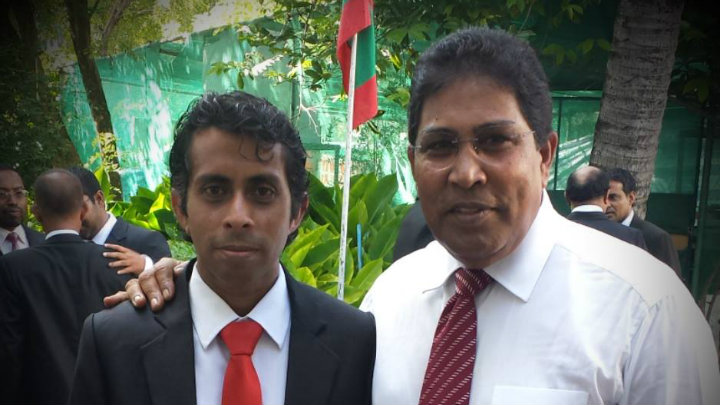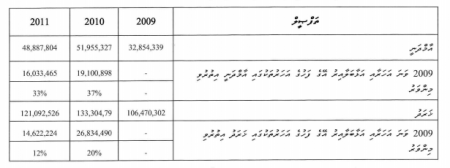The opposition Jumhooree Party spokesperson Ali Solih has been accused of unlawfully leasing an island to a company owned by a cabinet minister during his tenure as the minister of state for fisheries and agriculture.
The anti-corruption watchdog said Solih had leased an uninhabited island in Shaviyani Atoll to a company owned by then-minister of health Mariyam Shakeela.
The constitution bars cabinet ministers from actively engaging in a business, buying or leasing any state property or from having financial interests between the state and another party.
The Anti-Corruption Commission (ACC), in a report released today, said Solih had abused his authority in leasing the island to Shakeela’s company.
Solih was appointed to the fisheries ministry by former president Dr Mohamed Waheed in 2012.
The ACC said Solih had not consulted the fisheries ministry’s legal department in signing a contract. The department had informed Solih the transaction was illegal in a memo, but he told the ACC he was not aware that a memo had been issued.
Solih did not cancel the contract even when he found out the company belonged to the health minister, but considered transferring the contract to a new company, the ACC said.
The managing director of the new company was a shareholder in the company the island was first leased to, the ACC said. The act constituted abuse of authority to confer undue advantages and if convicted, is punishable with three years in jail, house arrest or banishment.
President Abdulla Yameen appointed Shakeela as health minister, but she lost her cabinet portfolio when pro-government MPs rejected her nomination in a cabinet shuffle in August.
It is not yet clear if the ACC will seek to prosecute Shakeela for continuing to hold shares in a company as health minister.
Speaking to Minivan News today, Solih said he was not aware whether a cabinet minister held shares in the company the island was leased to.
“It was not my responsibility to find out who owned shares in the company, but as soon as I found out that this contravened with the law, I asked the legal department to look into it,” he said.
“This is the government’s method of intimidating people who are working against their tyrannical regime,” he added.
The JP had split from the ruling coalition in January citing authoritarianism. Senior members of the party have launched an anti government campaign along with the main opposition Maldivian Democratic Party and the Adhaalath Party.
Two senior JP officials are now facing prosecution on criminal charges. JP deputy leader Ameen Ibrahim and JP council member Sobah Rasheed have been charged with terrorism for allegedly inciting violence during an anti-government demonstration on May Day.
The charges under the 1990 Anti-Terrorism Act carry a sentence of between 10 to 15 years in prison.
The pair are abroad at present. Sobah said he is seeking political asylum.
JP leader Gasim Ibrahim has been in Bangkok since late April. The tax authority in May froze Gasim’s Villa Group’s accounts claiming the company owed the government US$90.4million in unpaid rent, fees and fines.
Gasim insists the claim is unlawful and is contesting it at the civil court.
 (0)Dislikes
(0)Dislikes (0)
(0)
